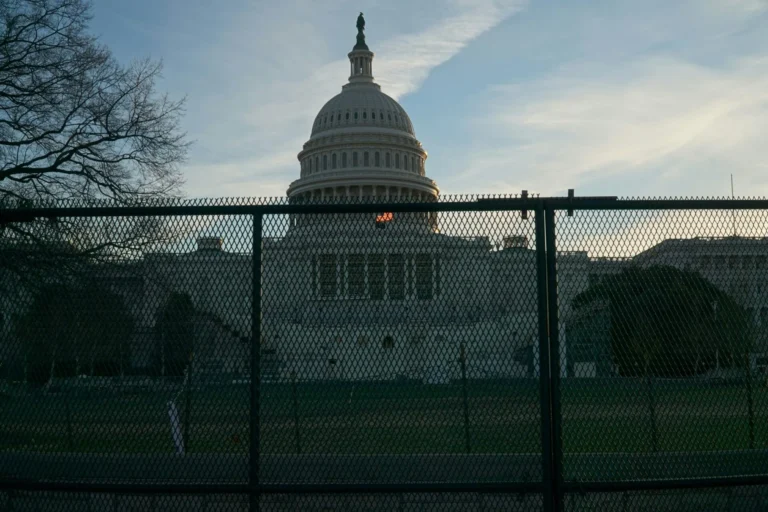A third study in a month has predicted growing hard times for U.S. state governments. Weakening Economy Rips Into State BudgetsBy Cliff Montgomery – Dec. 18th, 2007As 2007 departs, the financial well-being of several U.S. states may be leaving with it.A study of state finances released today warns that cuts in services may be forced on many state governments, thanks to spiraling budget deficits brought on by a weakening economy. Thirteen states, including such larger ones as New York and California, may face budget shortfalls during their next fiscal year.The report, prepared by the Center on Budget and Policy Priorities (CBPP), declares that state deficits may balloon up to $23 billion overall. The analysis is the third study in a month to predict growing hard times for U.S. state governments.The study states that another 11 states probably will have budget problems within two years.”We’re really teetering on the edge,” CBPP Deputy Director Iris Lav told Associated Press (AP).”With the deficits this large already before there’s actual evidence we’re in a recession, that seems quite serious.”We at aren’t sure what data are employed by CBPP to determine a recession, but a home mortgage meltdown and state governments in financial crisis seem pretty good indicators to us–and, we suspect, to most American citizens.The CBPP analysis echoes the findings of two separate studies released earlier this month.One survey, prepared by the National Conference of State Legislatures, declared that revenue growth for U.S. states has slowed, and added that numerous states already have either begun cutting corners or have lowered their revenue predictions.”We’re at the early stages of some pretty serious problems, and whether or not those get worse depends on what happens with the national economy,” Corina Eckl, the conference’s fiscal program director, told AP.The other report, from the National Governors’ Association, was even more stark. It revealed that U.S. state governors already have made deep cuts into their budgets, and soon may be forced into using their “rainy day funds” just to keep their state governments afloat.As for CBPP’s review, it found that:
- Fourteen U.S. states facing budget woes suffer from structural deficits, meaning that revenue now regularly fails to keep pace with state services. These include Virginia, Illinois and Missouri.
- Ten states currently project budget deficits next year. Three others predict revenue shortfalls which may create deficits: Kentucky, Florida and South Carolina.
- Eleven other states declare that their budgets may develop holes either in Fiscal Year (FY) 2009, or in FY 2010. These states include Ohio, Texas and Alabama.
Things obviously are getting tough all over. In Florida, economists predict a shortfall of $1 billion. Lawmakers there recently have made budget cuts to offset a $1.1 billion shortfall already on the books.California is fighting a growing deficit which may reach up to $14 billion. Budget officials in New York have projected a deficit of around $4 billion for their next fiscal year, which begins on April 1st.The study further predicts that the “rainy day funds” of U.S. states are too small. State balances for the funds have lowered to an average of 9.6 percent of budget totals by June 30th. They are projected to further fall to 6.7 percent some time next year.The CBPP believes that a “rainy day fund” encompassing 15 percent of a state’s total budget is preferred.This decline “leaves many states ill-prepared to face an economic slowdown,” stated the study.All three surveys identify the housing market meltdown as a major culprit of current economic woes. Poor home sales not only lessen tax revenue from the housing market, but they deeply effect the purchase of other “big-ticket” items, such as construction material, furniture and home appliances.But the studies are confusing what is itself a symptom of the problem with the initial cause. The current mortgage meltdown is the inevitable result of what pundits like CNN’s Lou Dobbs have correctly called “the War on the Middle Class.”Numerous corporations have for years been “exporting America,” to again quote Dobbs–which flatly means that in search of slightly higher profits, corporate executives have for years moved higher-wage jobs to countries which command lower wages.The American Worker then ordinarily must settle for a lower-wage service job as compensation.The eventual result of our ever-shrinking wages and our ever-growing costs of living? A nation of citizens who can no longer pay our mounting bills. Property bought on credit inevitably is repossessed, and homes undergo inevitable foreclosures.With so many Americans now caught in this economic vise, the problem can only fester and grow upwards like a poisonous vine. And perhaps that’s just as it should be.Like what you’re reading so far? Then why not order a full year (52 issues) of thee-newsletter for only $15? A major article covering an story not being told in the Corporate Press will be delivered to your email every Monday morning for a full year, for less than 30 cents an issue. Order Now!





